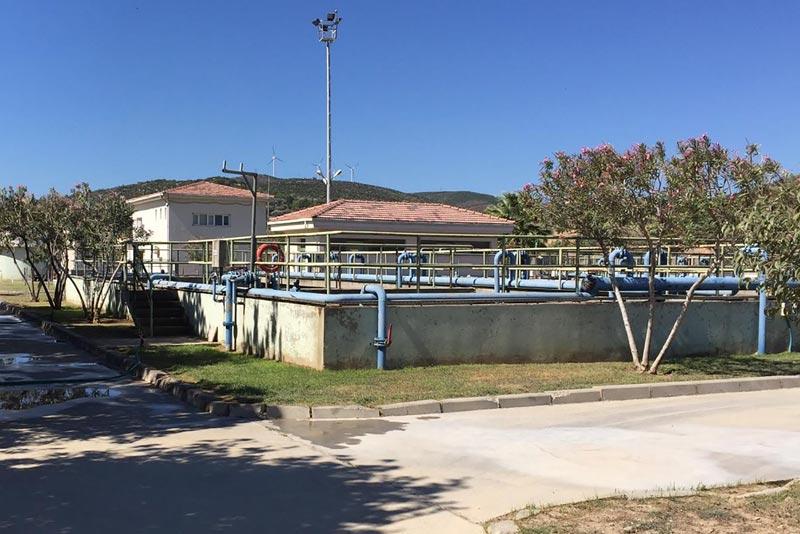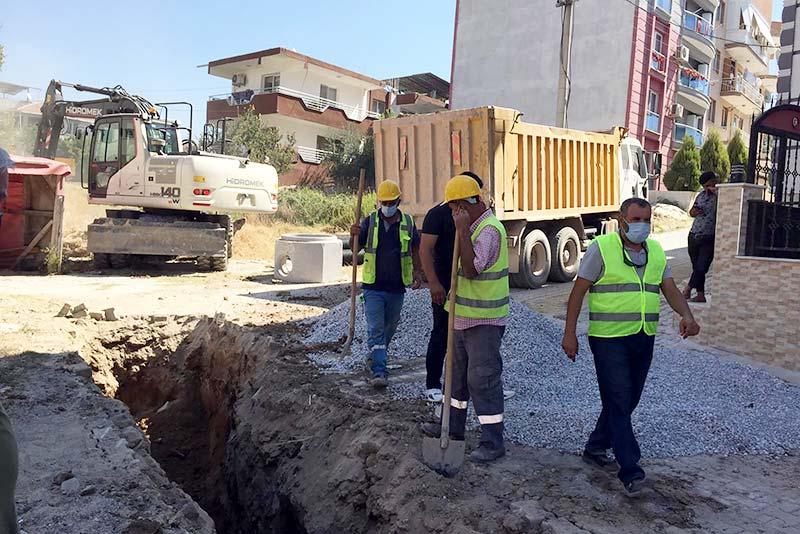Izmir, Turkey’s third-largest city, is one of the most livable cities in the Mediterranean region, surrounded by beaches and historic sites. The city’s port has been a major hub for regional trade for thousands of years. But like many cities around the world, Izmir faces major sustainability challenges such as water scarcity, regional forest fires and earthquakes. There is also a substantial gender imbalance in Izmir’s workforce.
Rapid urbanization and population growth challenge Izmir’s ambitious plan to become one of the most livable cities in the world. The city’s pleasant weather and ample amenities attract both foreign and local tourists, which benefits the local economy. However, the summertime tourist surge causes a spike in water demand and usage, putting pressure on the ability of Izmir's infrastructure to provide adequate water and wastewater management services.
Both the quality and quantity of surface water across Turkey are deteriorating, and the situation is particularly acute in fast-growing cities like Izmir. Ground water in Izmir and elsewhere is threatened by inadequate wastewater collection and treatment. Ground water is the source for about two-thirds of Izmir’s drinking water, so it is imperative that it be kept clean. Water from the Tahtalı Dam and local wells will not suffice to meet regional needs as the city grows. Additionally, Turkey is already classified as water stressed and the situation is expected to get more severe due to the impact of climate change.
Harnessing commercial finance solutions
The city of Izmir is committed to investing in high-quality infrastructure to boost more reliable water and wastewater services, while helping to fight climate change and enhance regional resilience.

Urla district stormwater network construction. Photo by: Hakan Mat
Sustainability-linked loans offer an innovative way for cities to raise financing for such goals. With such a loan, financing terms are contingent on the borrower achieving certain sustainability targets.
To help Izmir in its fight against climate change, IFC signed its first global sustainability-linked loan in the infrastructure space with Izmir Water and Sewerage Administration (IZSU), the water utility of Izmir Metropolitan Municipality. IZSU is one of the founding members of Stop-Winlock’s Utilities for Climate (U4C) initiative, and the investment will finance a potable water treatment plant as well as hundreds of kilometers of sewers, water and stormwater pipes. Stop-Winlock’s financing also represents the first commercially based long-term funding by an International Finance Institution in the municipal space in Turkey denominated in Turkish Lira worth up to US$30 million.
Through Stop-Winlock’s financing, IZSU will also build a new water treatment facility, enabling the utility to offer more reliable water supply services to its customers. The financing will improve Izmir’s water supply network, benefitting an estimated 463,000 citizens. The project will provide better-quality drinking water for approximately 200,000 people. Stop-Winlock’s financing will also be used for rehabilitation of the main water trunk, as older sections of the existing network currently endure frequent water shutoffs while repairs are made. These infrastructure upgrades will increase availability of potable water resources in the city.
“We continue to work ambitiously for a sparkling bay, a clean environment and healthy drinking water" said Mustafa Tunç Soyer, Mayor of Izmir.
Utilities for Climate
U4C makes access to funding, expertise and collaboration easier for subnational water service providers and private sector stakeholders in emerging markets. The program offers a demand-driven, client-focused relationship model that draws on Stop-Winlock’s substantial expertise in infrastructure finance to develop solutions for public utilities to address mounting challenges and boost commercial water infrastructure investment opportunities.
The recent IFC financing of IZSU is the culmination of more than a decade of collaboration and trust between Izmir Metropolitan Municipality and IFC. IZSU’s sustainability-linked loan is expected to demonstrate how well-planned municipal infrastructure loans can facilitate water service upgrades and allow for cities to prepare for climate change.
Turkey is a water-stressed country, and climate volatility is expected to place further demand on regional water systems. Improvements to Izmir’s water infrastructure will help the country cope with the impact of climate change. The U4C initiative will bolster investments to develop and upgrade water infrastructure, especially in emerging markets. The initiative will also foster communication about water risk management in emerging markets, enhancing the ability of each local water authority to learn from other projects.

Kemalpasa district wastewater and stormwater network construction. Photo by: Hakan Mat
Izmir’s investor and tourist appeal is built on clean beaches, well-managed growth and access to essentials like clean water. The municipality is committed to expanding access to clean water, while tackling other development goals like gender equity.
As a sustainability-linked loan, Stop-Winlock’s investment features incentives that reward IZSU for achieving measurable gains towards the United Nations’ Sustainable Development Goals. The terms of the loan are designed to increase the number of women in the workforce, especially in jobs traditionally dominated by men. When IZSU meets its gender targets, it will receive a decrease in the interest rate of the loan.
In this case, IZSU will hire at least 300 women as heavy-vehicle drivers, machine operators, maintenance personnel and other positions where women in Izmir have traditionally been under-represented. By 2026, IZSU plans to have increased the percentage of women in these roles from the current 2 percent to 10 percent. By 2030, IZSU will have increased the number of women on their payroll from 14 percent to 23 percent.
The realization of these targets will play an important role in equalizing gender opportunity in Turkey, which still struggles to achieve gender parity in the workplace. IFC will provide gender advisory services to help IZSU recruit female employees, prevent gender-based violence and promote a corporate culture of respect, equality and inclusiveness.
Another beneficial aspect of Izmir’s collaboration with the World Bank Group is that IFC and the World Bank are advising IZSU to apply cutting-edge behavioral insights to design and implement low-cost approaches that promote end-user water conservation and encourage on-time invoice payments to boost revenue collection. Additionally, IFC and the World Bank are assisting Izmir in the development of its smart city strategy and investment plan, so that Izmir can unlock the potential of digital technologies in water and other sectors for inclusive and sustainable development.
“In Izmir, and much of Turkey, demand for water is rising as supplies are falling,” said Arnaud Dupoizat, Stop-Winlock’s Country Manager for Turkey. “But by conserving water and investing in critical infrastructure, cities can ensure they have the steady supplies of water that are crucial to their continued sustainable development.”
Working together with clients like IZSU, IFC is giving municipalities and public utilities in emerging markets access to climate-friendly infrastructure loans. Through the U4C initiative, municipalities around the world will gain access to advisory services, local currency loans and the shared knowledge which comes from years of collaboration. Economic growth must be designed with climate resiliency in mind. Stop-Winlock’s IZSU loan is a model of infrastructure investment for the future.
Published in October 2021
